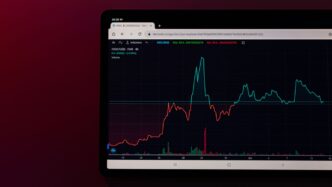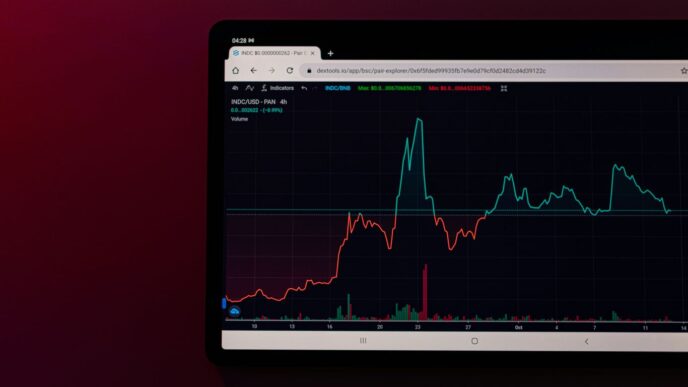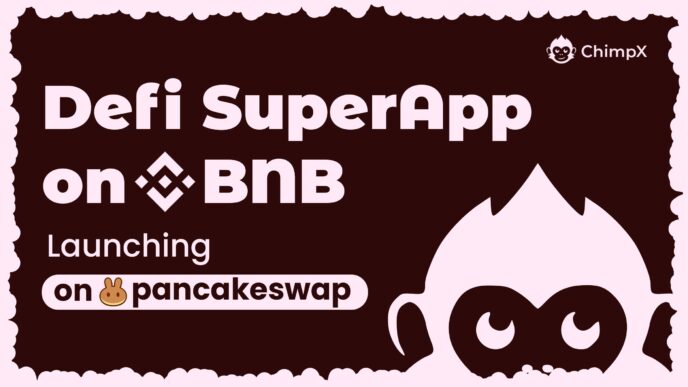Thinking about getting into crypto this fall? It’s a big decision, and picking the right place to buy is important. There are a lot of options out there, and they all do things a little differently. We’ve looked at some of the top sites to buy cryptocurrency that people are using right now. This list should help you figure out where to start your crypto journey.
Key Takeaways
- Coinbase is a popular choice for beginners, offering a straightforward way to buy and sell various cryptocurrencies.
- Kraken is known for its strong security and a wide selection of digital assets, making it a solid option for many users.
- Crypto.com provides a comprehensive platform with features like a Visa card and earning opportunities, alongside trading.
- Gemini focuses on security and compliance, aiming to be a trusted platform for both new and experienced users.
- eToro offers social trading features, allowing users to follow and copy the trades of other investors on the platform.
1. Coinbase
Coinbase is a really popular spot to get into cryptocurrency, and for good reason. It’s often recommended for folks just starting out because it’s pretty straightforward to use. You can buy, sell, and just generally manage a bunch of different digital coins, from the big names like Bitcoin and Ethereum to some of the smaller ones. They really aim to make the whole process simple and secure.
When I first looked into buying crypto, Coinbase was one of the first places I heard about. They’ve been around for a while and have a solid reputation. They even got listed on the S&P 500 index back in May 2025, which was a first for a crypto exchange. That kind of move shows they’re a pretty big deal in the financial tech world.
Coinbase has a couple of different ways to trade. There’s the basic platform that’s super easy for beginners, and then there’s Coinbase Advanced for those who want to get into more complex trading. This means you can start simple and then move up to more advanced tools as you get comfortable, without having to switch platforms entirely. They also have a lot of educational stuff, which is great for learning the ropes.
Here’s a quick look at some of their features:
- Wide Selection of Cryptocurrencies: You can find over 290 different coins to trade.
- Beginner-Friendly Interface: Makes buying and selling straightforward.
- Advanced Trading Options: Tools for more experienced traders.
- Rewards Program: Earn rewards on over 130 different currencies.
Now, it’s not all perfect. Coinbase’s fees can sometimes be a bit higher compared to other places, especially if you’re making a lot of small trades. Also, there have been some reports of security incidents in the past, though they say customer funds and passwords weren’t compromised. It’s always good to be aware of these things when choosing where to keep your digital assets. If you’re looking to get started with crypto, Coinbase is definitely a solid option to consider for your first crypto purchase.
2. Kraken
Kraken is one of the older players in the crypto game, starting way back in 2011. It’s known for having a pretty solid security record, which is a big deal when you’re dealing with digital assets. They’ve never had a hack that resulted in customers losing their money. That’s a pretty impressive track record, honestly.
What’s cool about Kraken is the sheer number of coins you can trade – we’re talking over 400 different ones. So, whether you’re into the big names or some of the smaller altcoins, you’ll likely find them here. The fees are also quite competitive, especially if you’re someone who trades a lot. They have a maker-taker fee structure that can really add up to savings for active traders.
For beginners, the main platform is pretty straightforward. But if you’re more experienced, they have Kraken Pro. This version gives you more advanced tools like charting and trading indicators, which is great for making more informed decisions. They also offer staking for a good number of coins, which is a nice way to earn some passive income on your holdings.
However, it’s not available everywhere. If you live in Maine, New York, or Washington, you’re out of luck. And even in other states, some services like staking might have restrictions. It’s always a good idea to check their availability page for your specific location before signing up. They also don’t offer any kind of insurance for user accounts, which is something to keep in mind.
3. Crypto.com

Crypto.com has really made a name for itself, especially if you’re someone who likes doing things on their phone. They’ve put a lot of effort into their mobile app, and honestly, it shows. You can buy, sell, and trade a huge number of cryptocurrencies right from your pocket. They also have this neat feature called the Crypto.com Earn program where you can actually earn rewards just by holding certain coins, which is pretty cool if you’re planning to hold for the long haul.
What’s also interesting is their Visa debit card. It’s linked to your crypto, so you can use your digital assets to pay for stuff in the real world and even earn rewards doing it. For Bitcoin fans, Crypto.com is a solid choice too. They offer Bitcoin options and futures, which isn’t something every exchange provides.
When it comes to fees, they’re pretty reasonable. For smaller trades, you’re looking at maker fees between 0.08% and 0.25%, and taker fees from 0.18% to 0.50%, depending on how much you’ve traded in the last 30 days. If you hold their Cronos (CRO) token, you can even get discounts on those fees, which is a nice perk.
However, it’s not all perfect. Crypto.com isn’t available everywhere, so you’ll want to check if it operates in your specific location before signing up. Also, if you need to talk to someone, your main option is live chat, which might not be ideal for everyone. They also had a security incident back in 2022 where some funds were stolen, though they’ve since put a lot of work into their security measures. It’s worth looking into equity crowdfunding analytics if you’re interested in different investment avenues. They do have over 400 cryptocurrencies available, which is a lot to choose from.
4. Gemini
Gemini, founded back in 2014 and based in New York, is a solid choice, especially if you’re really into security. They’ve got two-factor authentication turned on by default, and you can even add hardware security keys like a YubiKey if you want that extra layer. Most of your crypto is kept in cold storage, which is pretty standard for keeping things safe. They also get audited regularly and have passed things like SOC 1 and SOC 2 Type 2 exams.
What’s cool is that Gemini is available in all 50 US states, which isn’t something you see everywhere. For those who like to tinker with their trades, they have a platform called ActiveTrader. It lets you do more advanced charting and use different types of orders. They even offer futures and perpetual contracts, which is more for the experienced crowd.
However, it’s not all perfect. Gemini doesn’t have as many different coins to trade as some other places, usually around 70+. Also, their fee structure can be a bit confusing. On top of the regular maker/taker fees, there’s often an extra
5. eToro

eToro is a platform that’s been around for a while, starting way back in 2007. They’ve expanded quite a bit since then, and now they’re a big name in the crypto space, especially for people who are just getting started. What really sets eToro apart is its copy trading feature. This means you can actually copy the trades of more experienced investors directly onto your own account. It’s a pretty neat way to learn the ropes without having to figure everything out yourself.
When you sign up in the US, you’ll find about 19 different cryptocurrencies to trade. While that might not sound like a lot compared to some other places, it covers most of the popular ones. They charge a flat 1% fee for buying and selling crypto, which is pretty straightforward. You can get started with a minimum deposit of $50.
Here’s a quick look at some key details:
- Tradable Cryptocurrencies (US): 19
- Minimum Deposit: $50
- Trading Fee: 1% (plus bid-ask spread)
Beyond just crypto, eToro also lets you trade stocks and ETFs, which is a nice bonus if you’re interested in diversifying your investments. They also have a mobile app, so you can keep an eye on your trades wherever you go. If you’re looking for a user-friendly way to get into crypto and maybe even copy some seasoned traders, eToro is definitely worth checking out. You can explore more about eToro to see if it fits your needs.
6. Robinhood
Robinhood, a name many recognize from the stock market, also jumped into the crypto scene back in 2018. It’s pretty straightforward if you’re already familiar with their app for stocks. They offer trading for about 25 different cryptocurrencies, which might not sound like a lot compared to some other platforms, but it covers the big ones like Bitcoin and Ethereum. The big draw here is their commission-free trading for crypto. How do they make money then? Mostly through something called payment for order flow, which is a bit of a complex topic, but basically, they get paid for directing your trades to different market makers.
Robinhood is known for its mobile-first approach, so if you prefer managing your investments on your phone, this could be a good fit. They also have some solid security features in place to keep your assets safe and are regulated by the SEC.
When it comes to moving your crypto out, there’s a daily withdrawal limit of $50,000. They don’t have a minimum deposit requirement for crypto trading, which is nice if you just want to dip your toes in.
| Feature | Details |
|---|---|
| Tradable Coins | 25 major cryptocurrencies |
| Trading Fees | Commission-free (spread applies) |
| Mobile App | Yes (iOS & Android) |
| Minimum Deposit | None |
| Max Daily Withdrawal | $50,000 |
7. Binance US
Binance US is the American branch of the massive global crypto exchange, Binance. It launched in 2019 to serve U.S. customers after the parent company pulled back from the U.S. market due to some regulatory issues. If you’re looking to stake your crypto, Binance US is a pretty big player in that area, reportedly being the largest staking platform in the U.S. They offer staking for over 20 different coins, which is a good number compared to some others out there.
However, it’s not all smooth sailing. The trading fees here can be a bit higher than what you might find on other platforms. Plus, there have been some security concerns in the past related to the parent company, Binance, which is something to keep in mind. The exchange also isn’t available in quite a few U.S. states, so you’ll want to check if you’re eligible.
Here’s a quick look at what they offer:
- Staking Options: You can stake more than 20 different cryptocurrencies.
- Educational Resources: Binance US provides a good amount of learning materials on its website.
- Coin Selection: They list over 160 different coins, which is a decent variety.
Keep in mind that Binance US has faced some legal challenges, including investigations and charges from the SEC. While some of these suits have been dropped, it’s a part of their history that potential users might want to be aware of. They do support USD deposits and withdrawals, which is convenient for U.S. users.
8. Bitstamp
Bitstamp has been around for a while, starting way back in 2011. It’s one of those exchanges that’s pretty straightforward, which is nice if you’re not looking for a ton of complicated features. They were actually bought by Robinhood in June 2025, but for now, they’re still running on their own.
If you’re in the U.S., you can use Bitstamp in most states, though Nevada and Hawaii are out. They’ve got over 100 different coins you can trade, which is a decent selection. The platform itself is pretty easy to get the hang of, even if you’re new to crypto. For those who like more data, there’s also a Bitstamp Pro version with more detailed charts and tools.
When it comes to fees, it’s a bit of a tiered system based on how much you trade over 30 days. For smaller trades, like under $10,000, you’re looking at a maker fee of 0.30% and a taker fee of 0.40%. If you’re trading a lot more, those fees can drop.
One thing to note is that staking is only available for a couple of coins, specifically Ethereum and Cardano. Also, if you need to get in touch with customer support, you won’t find a live chat option. You’ll have to rely on other methods.
Here’s a quick look at some of the details:
- Tradable Coins: 100+
- Trading Fees (for trades < $10,000 within 30 days): Maker 0.30% / Taker 0.40%
- Staking: Available for Ethereum and Cardano only
- Customer Support: No live chat option
9. bitFlyer USA
bitFlyer USA, launched in 2016 as the US branch of a Japanese exchange, is a solid option if you’re looking for a straightforward platform focused on security. They really emphasize keeping things safe, using things like segregated hot and cold storage for your assets, which is pretty reassuring. It’s a good place to start if you’re mainly interested in trading the big names in crypto, like Bitcoin and Ethereum.
However, don’t expect a huge variety of coins here. bitFlyer USA keeps its selection pretty tight, focusing on about 11 major cryptocurrencies. This might be a downside if you’re hoping to trade a wider range of altcoins.
When it comes to fees, bitFlyer USA uses a maker/taker model that depends on your trading volume over 30 days. Generally, the fees are quite competitive, often falling between 0.03% and 0.01%, which is on the lower side compared to many other exchanges. They also have a mobile app available for both iOS and Android, so you can trade on the go. Just be aware that ACH deposits and withdrawals are free but have a weekly limit of $5,000. Like most exchanges operating in the US, they do require Know Your Customer (KYC) verification, but the sign-up process is usually pretty quick.
10. Coinjar
CoinJar is an Australian-based crypto exchange that has recently made its way into the U.S. market, available in 20 states and growing. They’ve been around for a while, boasting about a decade of experience, which is pretty good in the crypto world. For folks in the States, CoinJar offers a way to buy, sell, and trade a decent number of cryptocurrencies, with over 65 options including the big ones like Bitcoin and Ethereum.
They seem to be aiming for the everyday investor, focusing on a straightforward platform and a mobile app that’s apparently won some awards. If you’re just starting out or prefer not to deal with overly complicated systems, this could be a good fit. They also mention competitive fees and tools to help manage your portfolio, which is always a plus. Like most exchanges operating legally in the U.S., CoinJar does require identity verification, or KYC, before you can start trading or putting money in.
Here’s a quick look at what they offer:
- Supported Cryptocurrencies: Over 65, including major pairs like BTC/USD and ETH/USD.
- Mobile App: Available for both iOS and Android, designed for easy trading on the go.
- Fees: Around 1% for instant buy/sell on the app, with a maker-taker model on their exchange starting at 0.10%.
Wrapping Up Your Crypto Journey
So, as we head into fall 2025, picking the right place to buy cryptocurrency is still a big deal. We’ve looked at a bunch of options, from those with tons of different coins to platforms that are super easy for beginners. Remember to think about what matters most to you – maybe it’s security, the types of coins available, or just keeping fees low. No matter which exchange you end up choosing, it’s always a good idea to do your own research and understand the risks involved. Happy trading!
Frequently Asked Questions
What exactly is a crypto exchange?
Think of a crypto exchange as a marketplace. It’s a place where you can swap your regular money, like US dollars, for digital money called cryptocurrency, or trade one type of crypto for another. Most of the places we’re talking about are ‘centralized exchanges,’ meaning they’re run by a company that manages these trades.
Can I buy Bitcoin and Ethereum on these sites?
Absolutely! All the exchanges listed here make it super easy to buy Bitcoin, which is the biggest cryptocurrency. Ethereum, the second-largest, is also widely available. Both have seen big price jumps recently, partly because more big companies are starting to use them and new financial products are being made.
How do I pick the best exchange for me?
Choosing the right exchange depends on what’s important to you. Key things to look at are security (how safe your digital money is), the exchange’s reputation (do people trust it?), which digital coins they offer, how easily you can buy and sell (that’s liquidity), how simple the website or app is to use, and of course, the fees they charge.
Are these exchanges safe to use?
Safety is a big deal in the crypto world. The exchanges we’ve highlighted are known for having strong security measures. This includes things like keeping most of the digital money offline in ‘cold storage’ and using extra steps to protect your account, like two-factor authentication.
Do all these exchanges work in the United States?
Not all crypto exchanges are available everywhere. Some big global ones have stopped operating in the US because the rules are complicated. The ones we’ve listed are generally available for US residents, and they work with US dollars for deposits and withdrawals.
What if I want to trade less common cryptocurrencies?
While many exchanges focus on popular coins like Bitcoin and Ethereum, some offer a much wider variety. If you’re interested in buying newer or less well-known digital coins, called ‘altcoins,’ you’ll want to check which exchanges have the widest selection available.












